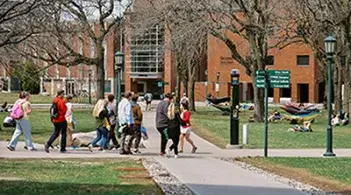Health and Society
Type of Degree
B.A.
School or College
College of Arts and Sciences
Area of Study
Health and medicine
Program Format
On-campus, Full-timeThe Health and Society Program (HSOC) offers an interdisciplinary, cross-college major.
Loading...


